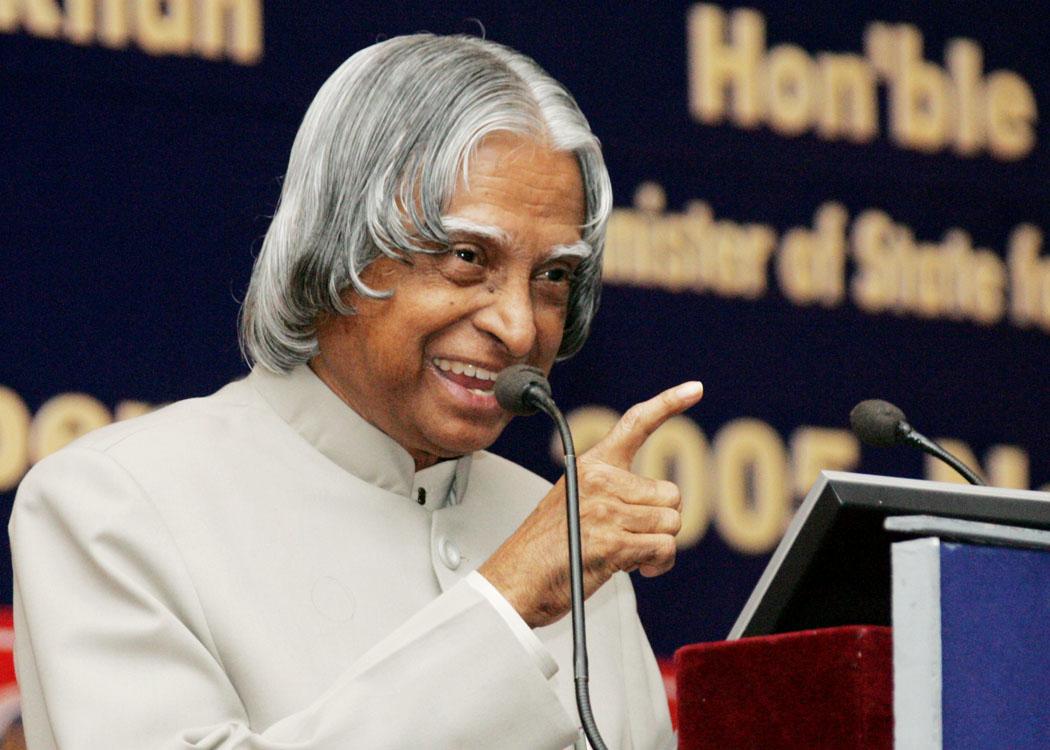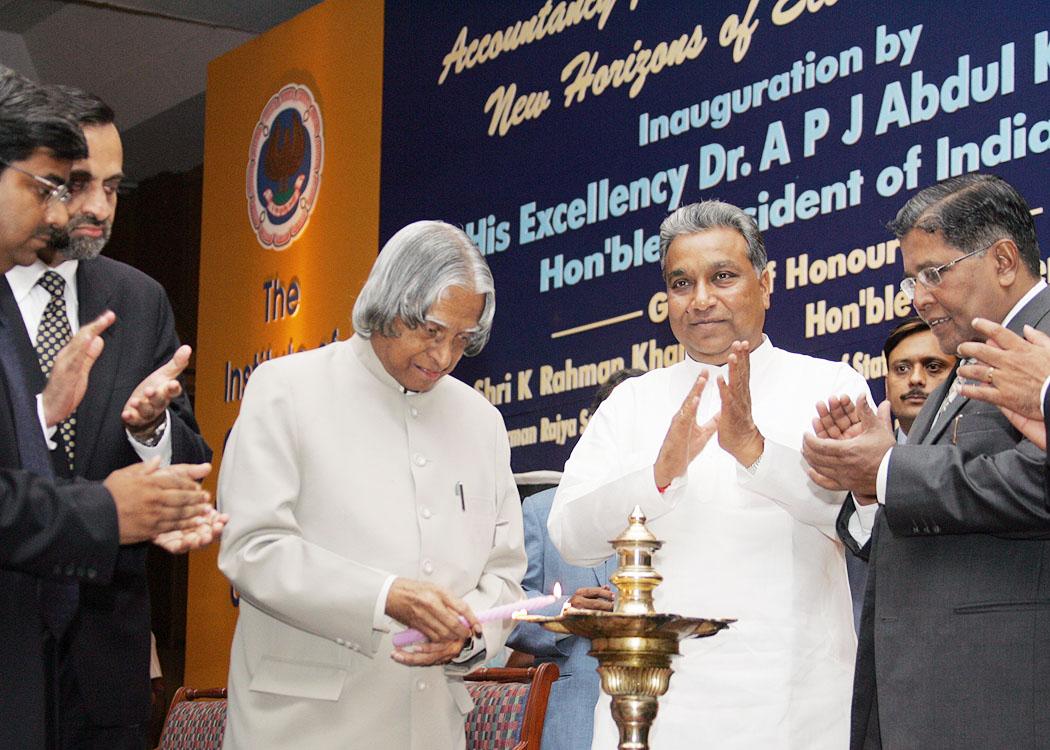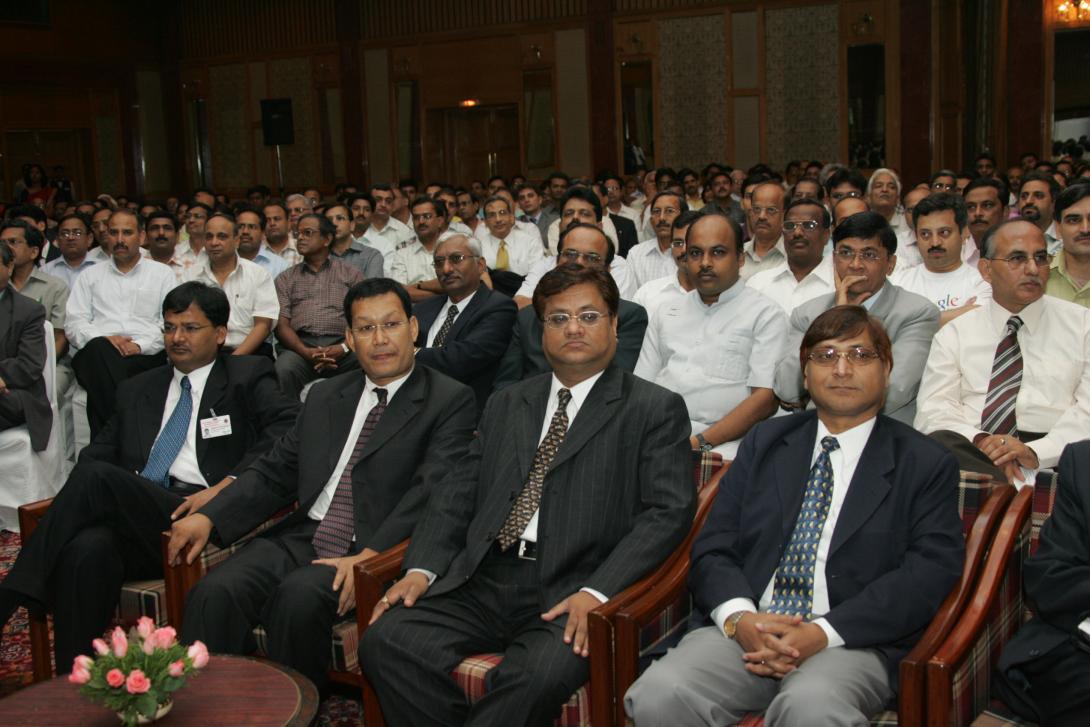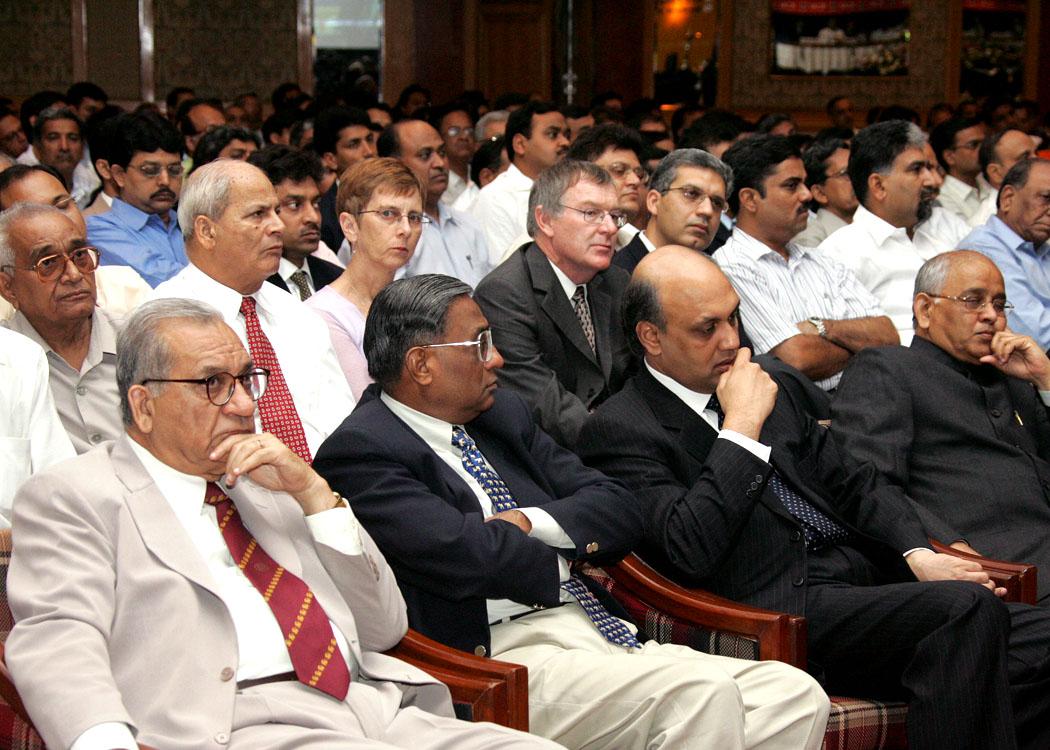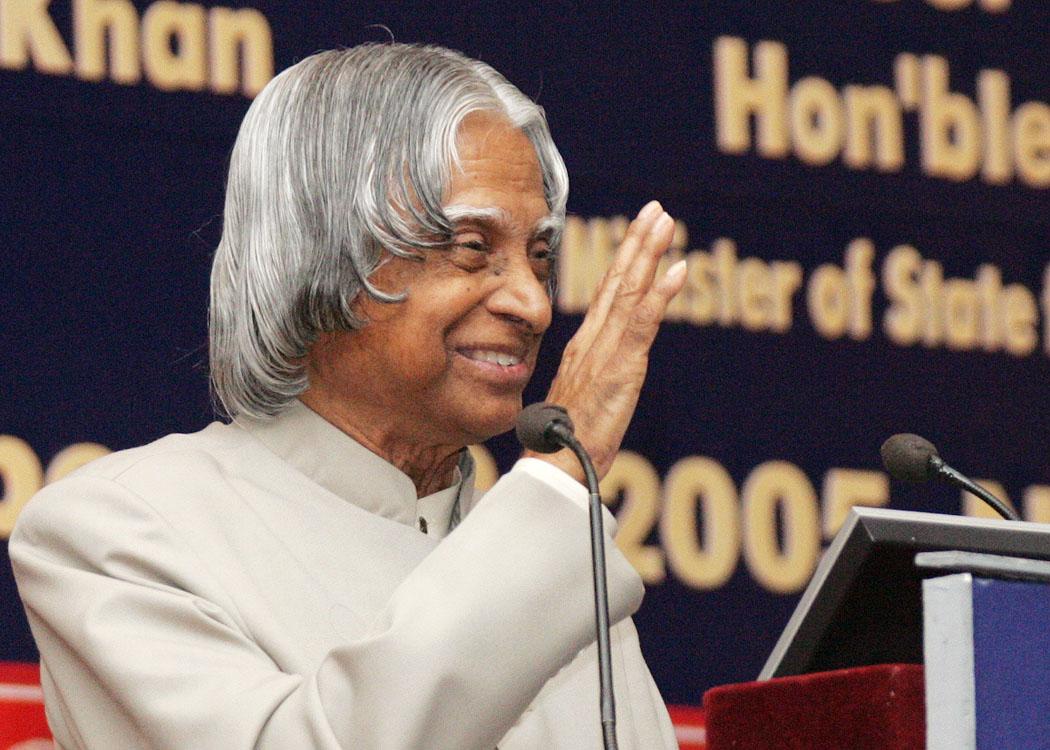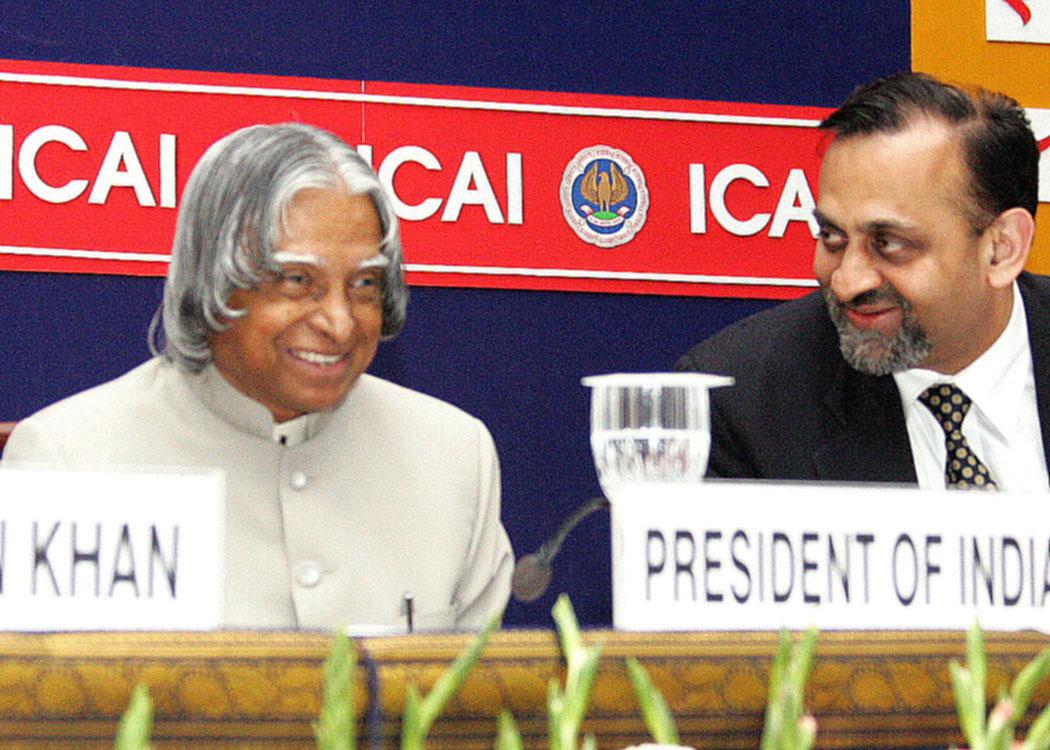Address At The Icai'S International Conference On Accounting Profession: Adding Value To New Horizons Of Economic Growth, New Delhi
New Delhi : 01-09-2005
Chartered Accountants: Partners in National Development
I am delighted to participate in the International Conference on Accounting Profession: Adding Value to New Horizons of Economic Growth organized by the Institute of Chartered Accountants of India (ICAI). My greetings to the organizers, office-bearers of ICAI, accountancy specialists, industrialists, economic planners and the distinguished guests. While I am addressing this audience I am aware that you are representing over one hundred and twenty five thousand accounting professionals engaged in monitoring, protecting and promoting the economic health of our wealth generating institutions.
Over the years ICAI and its members have made a name for themselves in the development of discipline as well standards of accounting. The Chartered Accountant community of India is one of the largest in the world. The 10th plan is focused on the agro-food processing and it is time that the ICAI gets interested in the agricultural sector as in the case of manufacturing and services. Can the Chartered Accountants formulate a model which can enable the value addition in the business of agriculture? Keeping in view the focus of this Conference, I would like to talk to you on the topic "Chartered Accountants: Partners in National Development". In this connection let us discuss about our national challenges.
Our National mission - challenges
Our nation is going through a major challenge of uplifting of 260 million people who are below the poverty line and also to give better life for many millions who are on the border line of poverty or just above the poverty line. They need decent habitat, they need work with reasonable income, they need food, they need health care, and they need education and finally resulting into a good life. Our GDP is growing at more than 7% per annum on an average. Whereas, the economists suggest that to uplift the people from below the poverty line, our economy has to grow at the rate of 10% per annum consistently, for over a decade.
Integrated action: We have the mission of transforming India into a developed nation. For this we have identified five areas where India has core competence, for integrated action:
(a) Agriculture and food processing;
(b) Reliable and Quality Electric power, Surface transport and Infrastructure for all parts of the country.
(c) Education and Healthcare
(d) Information and Communication Technology and
(e) Self reliance in critical technologies.
These five areas are closely inter-related and will lead to food security, economic security and national security. Can the member of ICAI provide a business model for enhancing the momentum to our economic activity and enable us to realize the GDP growth rate of 10% and maintain it consistently for ten years from the existing 7%, through good governance and competitiveness, based on their experience in accountancy, auditing and financial management in the manufacturing and services sector.
It is essential that the benefits of maximum portion of the fund allocated in government projects reach the intended beneficiaries. To realize this situation of bringing about higher yield from the projects, sanctioning authorities, can seek the help of Chartered Accountants for simplifying the procedures. It will enable easier implementation of the project and assist the project leaders in providing robust and responsive methods of financial reporting for bringing about transparency and participation of all the stakeholders in the decision making process.
ICAI providing business plan in specific national development task.
ICAI has acquired financial management experience for many decades within the country and abroad. One of the national challenge is: How do we get maximum economic benefit for the given investment? I believe this is your core competence. As you are thinking in terms of value maximization, I would like to suggest your participation in one of the very important national need of the country. As you are aware, recently the Employment Guarantee Bill has been passed by the Parliament and it seeks to provide better job security to the needy in two hundred rural districts by giving at least 100 days of guaranteed wage employment in every financial year to every household. There is a need to link the provision of this Bill to the integrated rural development programmes called Providing Urban Amenities in Rural Areas (PURA) as envisaged in the Bharat Nirman programme of the nation.
PURA as an Enterprise
As per our estimates, bringing about rural prosperity would need at least 7000 PURAs (Providing Urban Amenities in Rural Areas) for the whole country, PURA envisages integrated connectivities, they are: physical connectivity of the village clusters through quality roads and transport; electronic connectivity through tele-communication with high bandwidth fiber optic cables reaching the rural areas from urban cities and through Internet kiosks; and knowledge connectivity through education, vocational training for farmers, artisans and craftsmen and entrepreneurship programmes. These three connectives will lead to economic connectivity through starting of enterprises with the help of banks, micro credits and marketing of the products.
The members of the ICAI can work out a business plan for the PURA in their region for enabling it to be run by small scale industrialists located in the area. The accountancy training to the prospective entrepreneurs can be part of the overall entrepreneurial development programme organized by the local colleges in collaboration with the banking system. PURA enterprises can also undertake management of schools, health care units, vocational training centres, chilling plants, silos and building a market, banking system and the regional business or industrial units. Can the Chartered Accountants give the business and management plan for agricultural produce in all seasons so that the repeated revenue costs of fragmented efforts are avoided? There are several agri-based business opportunities like Jatropha, bamboo, sandalwood, durable localized speciality foods etc. New PURA enterprise needs partnership from the bank, the members of the ICAI, academic institutions, Government and also from the private entrepreneurs. An organisation for farmers by the farmers for farming, production and marketing is the need of the hour. What role ICAI can play in evolution of such a plan of action based on their experience. Now I would like to discuss the changes which are likely to emerge in our society during the next decade and a half.
Changing pattern of society
When the world was moving from the industrial to information and knowledge era, we witnessed a changing pattern in the sectoral share of GDP and the number of people employed in each sector. The share of Gross Domestic Product (GDP) percentage has undergone a considerable change. Contribution of agriculture to India?s GDP has reduced from 39% to 22% during the period 1979 to 2004. During the same period contribution of manufacturing sector has moved from 24% to 27% and whereas the contribution from the services sector has increased from 37% to 51%. There has been considerable change in the employment pattern also. The percentage of people employed in agriculture has come down from 64% to 54%. Simultaneously, the percentage of people employed in manufacturing has gone up from 15% to 19% and in the service sector from 20% to 27%. This trend will continue and by 2020 our employment pattern expected is 44% in agriculture, 21% in manufacturing and 35% in service sectors. The displacement of 10% people from agriculture sector has to be compensated through skill enabling in the rapidly vanishing village specific intellectual property for undertaking value added products like durable foods, home remedies, etc. in the rural enterprises so that migration to urban area is reduced. ICAI has to create a model and work out methodologies through which the 10% people who are displaced from the agricultural sectors can be deployed fruitfully in the services and manufacturing sectors within the rural complexes either as self-employed entrepreneurs or members of small enterprises.
SSI Sector
As per the data provided by the Reserve Bank of India there are approximately 12 million SSI Units in the country. Among these Units at least 6% are expected to be sick. What we require is, technological and skill upgradation, facilitating the market for the product, timely payment to the SSI by the major industries for the products supplied. The members of ICAI located in the region can take up the mission of upgrading some of the SSIs which are in difficulty and bring normalcy to them in collaboration with local entrepreneurs through a revival package. Also, the members of the ICAI can think of innovating a simpler IT based accounting system to be followed by the small SSIs with minimum effort. This will be a very important societal mission since the SSI sector generates employment for large number of rural citizens and is a wealth generator for the rural sector.
Proactive auditing and process control
Now I would like to discuss the future challenges of the ICAI. The auditing always seems, to the common public, as a mechanism of exposing irregularities. Can the auditors suggest a transparent system with easy guidelines? In the world of computers, software developers use the process control mechanism which ensures that the software developed, is nearly bug free and the programmer is almost prevented from making mistakes. Since the world of computers and accounting are merging somewhere, can ICAI develop guidelines and process controls and checks, so that the irregularities will not enter into the financial management of enterprises? Some sectors like banking and manufacturing are already working with such systems.
Fusion of ICT and Auditing
India is aspiring to become one of the economic powers. This will call for the creation of several Indian multinationals across the world. We have been witnessing certain acquisitions of foreign companies by Indian industrial establishments. Similarly, we are witnessing a generation of borderless engineers and scientists working across many nations. Because of these changes, today an auditor must specialize in international business, accounting and auditing practices.
Just like software professionals benefiting from outsourcing, it is expected that the auditors and accountants of India would be the advisors and the actual implementers for many leading industries and establishments in the developing and the developed world. For this to become a reality, a near paperless accounting system which hinges on electronic cash and credit card transactions, will become the part and parcel of the business of a CA. Today in our computerization attempts the paper trail is still maintained for fear of mistrust and untested authentication mechanisms in the world of computers. Hence computerization has nearly become an act of impediment and we merely enter the paper transactions on the computers. This has to be changed in such a way that the transactions are born digital and automatically captured; we should spend more time on thinking rather than data entry. Hence the fusion of ICT and auditing is essential.
Integrated experience of ICAI
When I am with the members of the ICAI, I realize that by virtue of your tasks, you have three unique experiences:
a. The professional auditing of all commercial organisations including public sector establishments.
b. Qualified members of ICAI after gaining experience have taken up the responsibilities of CFO?s of enterprises.
c. Some members after serving as CFO?s have assumed the leadership of certain enterprises as CEO?s.
It means, the CAs have an integrated experience of auditing, financial advice and financial management and providing leadership to certain industries and establishments. I would like to suggest to you that with your long experience, you should bring out a book titled "ICAI experience of five decades in financial management towards National Economic development".
Quality experiences of various auditors and auditing firms will definitely make this work as a standard reference of accounting experience and bring out the vitality of the charter of duties of the institution.
Always there is one question in the minds of people whether auditing comes in the way of economic development. This book what I am referring to should bring out clearly that the auditing professional is indeed a partner in national development.
Suggestions to the members of ICAI
The members of ICAI have been contributing to the growth and the maturity of manufacturing and the services sector of the nation during the last fifty five years. Now ICAI with their corporate experience should pay attention to the agriculture and rural development sector also. For enabling the above I have the following suggestions for the members of ICAI.
a. Creation of a productive linkage between the National Rural Employment Guarantee Bill 2005 and the Rural Development Programme.
b. Preparation of business plan for the PURA complexes spread in different parts of the country in consultation with the district authorities for execution by local entrepreneurs.
c. Training the local talent in basic accountancy practices through village knowledge centres being established in village Panchayats and provide consultancy to the village enterprises.
d. Take up the mission of upgrading few SSI units and bring them back to normalcy through a revival package using local entrepreneurs. Also, development and implementation of IT based simplified accounting systems for the small entrepreneurs in the rural sectors.
Conclusion: Vision of ICAI
Time has now come for the Chartered Accountants to elevate themselves from component audit to system performance audit. How are you going to prepare yourselves from now onwards for celebrating the year of completing the 100 years of service in auditing by the year 2049? Hence the vision of ICAI can be:
"ICAI will transform into a Financial Management and financial advice organisation with focus towards economic development of the nation and enhancing the growth of GDP in all three sectors of the economy."
I am suggesting the derivation of the following missions for the next four decades leading to "Vision of ICAI 2049" for discussion in this Conference.
1. During auditing of the institutions, the value system of the institutions will be in focus, which means ICAI training must include ethics in action for the CAs in their business and in their life.
2. I suggest, that all the CAs before entering into the profession should take the following oath : "I realize the profession I am entering is the trusteeship of financial management and I will assist whichever institutions I audit keeping in view the societal obligations. I will not only bring out the problems of financial management for protecting the interest of all the stakeholders of the enterprise, but also suggest possible solutions with ethics as a way of life."
3. CAs will consider their mission is the mission of the "National Economic Development."
I inaugurate the International Conference on Accounting Profession: Adding Value to New Horizons of Economic Growth and wish the members of the conference success in their mission of being partners in the national development.
May God bless you.

